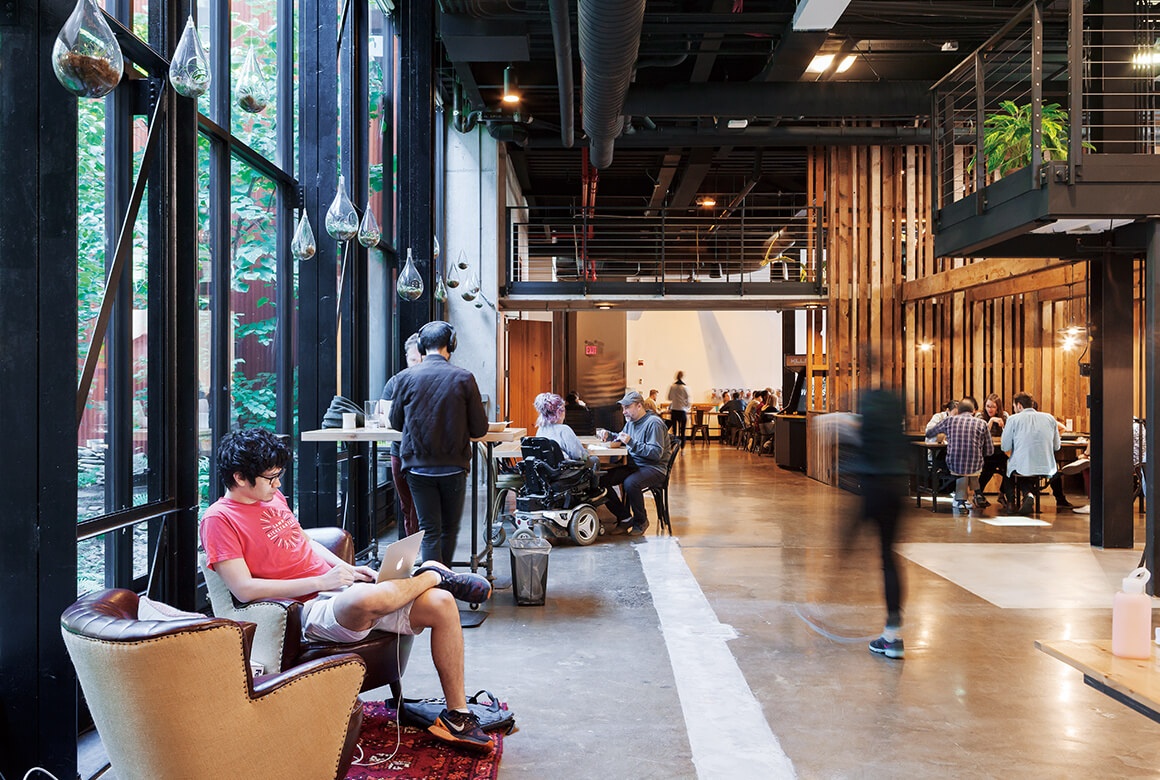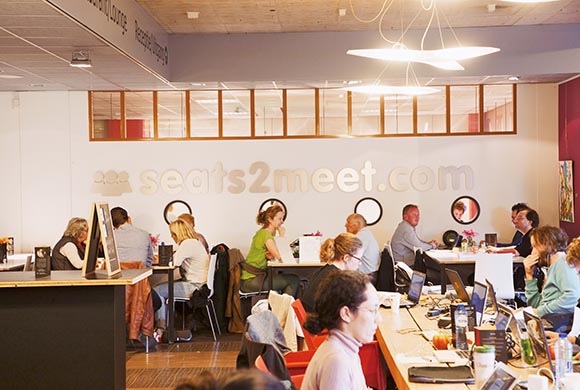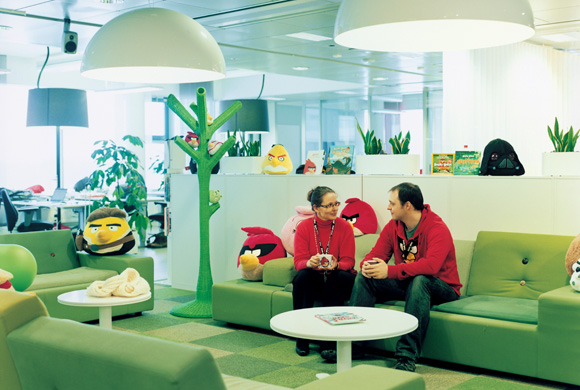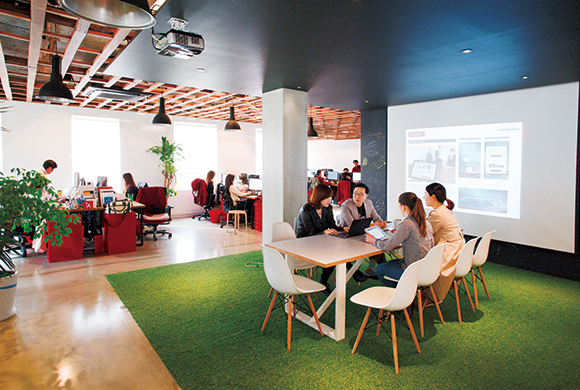Workplace
Feb. 2, 2015
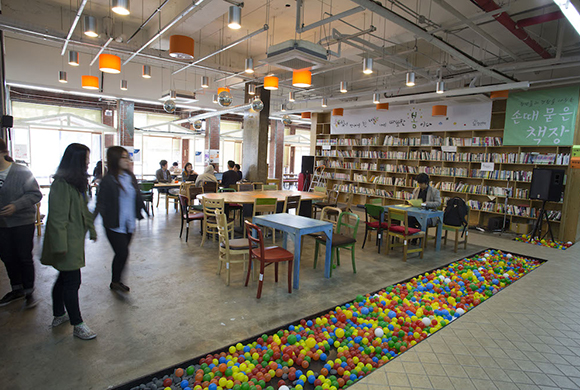
Encouraging the independence of youth;
Training the talent that can reform Korea
Organization supporting Korean youth
[Seoul Youth Hub] South Korea
When we talk about people born in special times in Japan, we refer to the bubble generation, or the pressure-free education generation; in neighboring Korea, they talk about the IMF Generation.
The IMF is of course the International Monetary Fund. In 1997, the Asian Currency Crisis, which effected almost all of Asia, also had a negative effect on Korea. The country received support from the IMF, but a great number of companies experienced the bitterness of bankruptcy. Thousands of unemployed people spilled out into the streets. The students of that time—who found it difficult to find employment after graduating from school—are called the IMF Generation.
“The first on the list of the IMF Generation are the young people who experienced the IMF crisis as elementary or junior high school students, and are the ones who felt that whatever achievements they might accumulate, or whatever qualifications they might possess, they had no idea of how they would get a job, so the feeling of resignation towards society spread like a disease,” says Hyo-kwan Jeon.
To help support these young people, who after all must build tomorrow’s Korea, the Seoul Youth Hub was created in April of 2013 in the capital city, with Mr. Jeon as its leader.
“Legally speaking, people from 18 to 34 are called ‘youth’ in Korea,” Mr. Jeon says. “However, the generation of us who experienced the IMF crisis include people up to 39 in the description. The employment rate and hiring both were going down, and the number of young people giving up looking for work were increasing, and there were many cases where people did find a job, but were not able to remain with the company. In the midst of this very serious situation, we felt that if some investment could be made and that worthwhile activities for young people could be made possible, that could be an engine of change for Korean society. That was the thinking behind creating the organization that is the Youth Hub.”
The programs offered by the Youth Hub cover many areas, but one especially unique one is the Seoul New Deal Job Project – Seoul Youth Innovative Job Project. “It’s a program in which young people get the opportunity for work experience with social service businesses, such as cooperatives and day nurseries, organizations involved in regional vitalization,” Mr. Jeon says. “The reason for this is to get the young people, many of whom only think about employment with a large company, to understand that they can also make a living working for these kinds of organizations as well.”
Previously in Korea, support projects aimed at young people were referred to as public work, but these were only for very short periods of time, so often people would be looking for other jobs at the same time. However, once the program was over their work was also finished, so there was no way to stop the growth of the number of unemployed. The Seoul New Deal Job Project – Seoul Youth Innovative Job Project, however, provides long-term employment of nine months to one year, allowing the individual to gain valuable work experience. The result was that in the first year, 100 young people took part in the program, with more than half of them remaining employed at the same place once the program was completed. “There were also young people who, by using the things they learned through their work, also helped to invigorate the companies,” Mr. Jeon says. “This year about 150 people are taking part, so this is a very exciting time for us.”
 A seminar held at the Youth Hub, eagerly listened to by the participants.
A seminar held at the Youth Hub, eagerly listened to by the participants.
Founded:2013
http://youthhub.kr/international
 Some young people in the Youth Hub enjoy table tennis. The tables are a gift from Hyo-kwan Jeon, not only chief of the Hub but also the Chairman of its Table Tennis club.
Some young people in the Youth Hub enjoy table tennis. The tables are a gift from Hyo-kwan Jeon, not only chief of the Hub but also the Chairman of its Table Tennis club.
As you walk through the Youth Hub, you will see a long bookcase stretching along one wall. This is the jointly-owned bookcase; the other name, Mr. Jeon says with a laugh, is “the bookshelf with dirty fingers.” Users decide on their own space within the bookcase, in which they will add their own books. It is designed so that anyone else can read these books. So it is both a personal, and a shared bookshelf. “I was originally going to increase our collection by working to gain more donations,” Mr. Jeon says, “but as it also became a personal bookshelf, the people using it became more and more attached to it.”
One space that might be hard to understand at first glance is the room known as Hyu. “This is a space located below the director’s office,” Mr. Jeon says. People can use it as they like for breaks, and it extends back into the building. Some people take a little siesta in there, while others just have fun or talk over things.” It’s very much like a garret or loft, and a place where people can rest emotionally.
The Youth Hub also has multi-purpose halls. Lectures, film screenings, discussions, concerts and many other kinds of events are held here. And as long as it’s not for business purposes, outside people can use the spaces as well.
Within the open space of the Youth Hub is a café. It’s not unusual for open spaces and cafés to work together, but the operation of the Window Café is entrusted by the Youth Hub to its participants. “The cooperative established within the Youth Hub handles the operation,” Mr. Jeon says. “This is done to help youth who are finding it hard to make a living, but also to encourage active participation in economic activity, and to provide a real working experience.” As long as it is not tied to any special business, visitors can also make free use of the café, which also provides Internet connectivity.
The Youth Hub also contains a space provided for young people who have already begun an enterprise. Known as the Sliding Door Office, it is a space which, like the name says, makes use of a sliding door. “We work to provide support to small communities called Youth Charm. So we don’t take funds from the users,” Mr. Jeon says. “Instead of that, we tell them that once a month, they must meet with the people of different communities, and provide other advice like this. Meeting with people of other communities allows them to get a good sense of the synergies that emerge.”
Like Japan, Korea is a country which saw extremely rapid development over a very short time. Just as for Japan, too, the competition in the school entrance examinations in Korea is very severe. And after the time of the exams is that fact that the people will live in a competitive system.
Another person who experienced the IMF crisis as a student was Youth Hub manager Seonkyeong Han. “This generation of young people today feel that no matter how honest they are, they can’t clearly see a future for themselves,” she says. “Something I hear recently from junior and senior high school students is that the reason why they don’t go to school is that they hate showing their notes to classmates who can’t take notes. However much they take classes, they don’t want to share with other people. They are overly defensive to society, and I can say that they are becoming extremely individual.”
“The economic structure in Korea is in a sense assumed to be competitive,” Mr. Jeon says. “A certain percentage of young people are able to cope with the system well, but once you drop out of the system it’s finished for you. We wanted to help build a social foundation that can maintain their sense of value to society, and that’s why we run the Youth Hub.”
And, just as he hoped, in the one year since its founding, the Youth Hub can bit by bit demonstrate to the world that more youth are recognizing their own social value.
“We’re currently operating under a budget from the city of Seoul, but we have also gained support from private organizations,” Mr. Jeon says. “We also gain a lot of ideas by talking with many young people, so we want to expand into new areas as well.”
Just as he was saying this, Park Won-soon, a man who put great effort into the issue of youth long-term employment, was re-elected as mayor of Seoul. With the overall backup of all of Seoul, the Youth Hub can focus all its energy into supporting youth.
Consulting (Work style):Hyunjoon Yoo Architects
Interior design:Hyunjoon Yoo Architects

Open space within the Hyo room.

Window Café, operated by the young people of the Youth Hub.

Hyo-kwan Jeon, Chief of the Seoul Youth Hub (As of April 2014 Mr. Min-Jung Seo succeed Mr. Hyo-kwan Jeon).

Sun-Kyung Han, who works in associate at the Youth Hub on a freelance basis.






